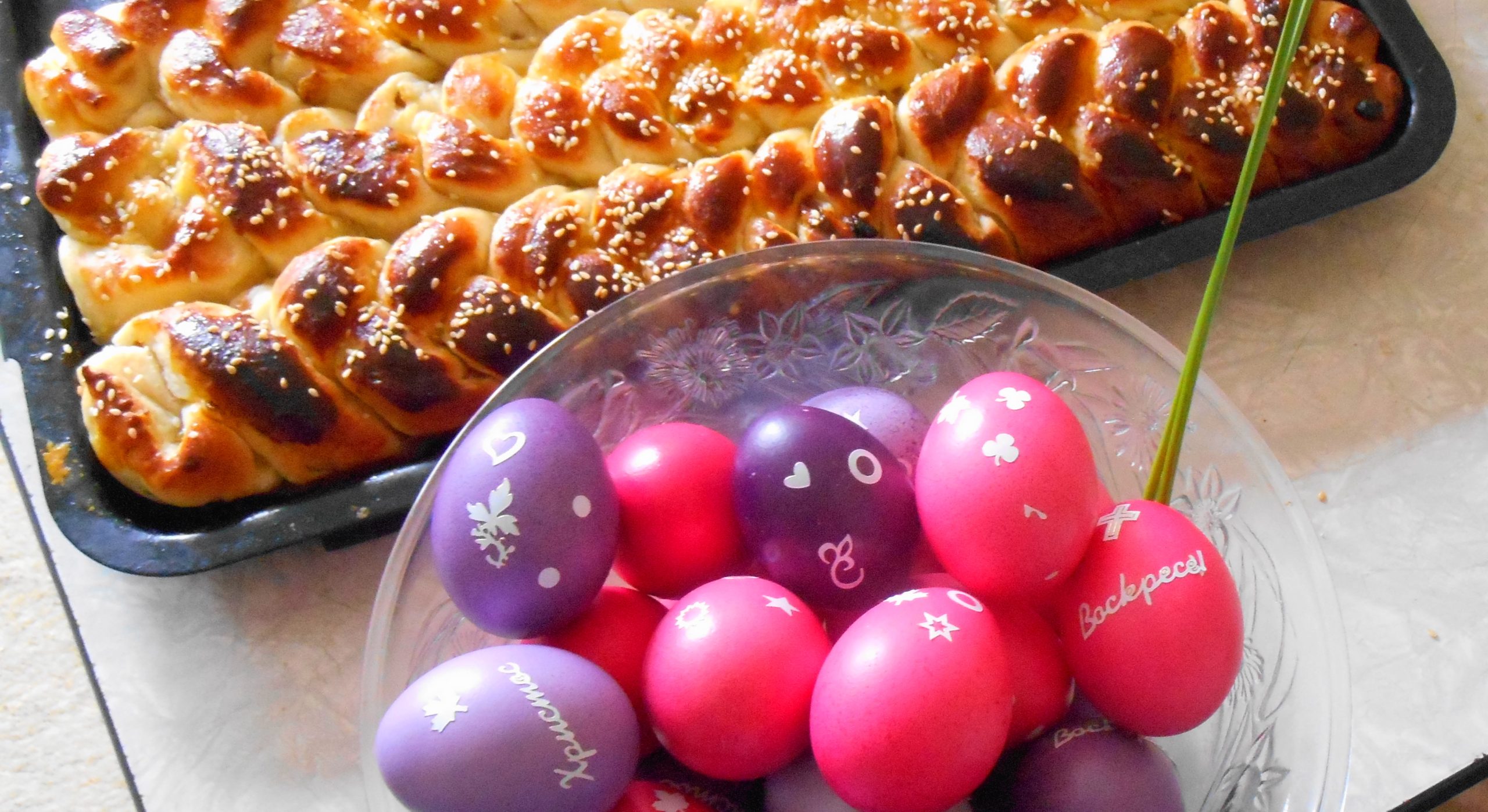
Observing Orthodox Easter: Traditions, Fasting, and Celebration within the Macedonian Community
Orthodox Easter, known as Veligden in the Macedonian community, is among the most significant and revered holidays, encapsulating deep spiritual meaning, centuries-old traditions, and a sense of communal belonging. For those not familiar with the Orthodox Christian calendar, Easter does not have a fixed date and varies each year, as it’s determined based on the Julian calendar’s Paschal Full Moon. This year (2024), Orthodox Easter falls on May 5th, offering a period of reflection, preparation, and eventual celebration.
The Lenten Season and Fasting
The journey to Easter begins with Great Lent, a 40-day period of fasting, prayer, and almsgiving that precedes Holy Week. This is a time for spiritual reflection and preparation. Fasting in the Orthodox tradition is not merely abstaining from certain foods (including meat, dairy products, and eggs) but also a time for personal growth, charity, and strengthening one’s faith.
Holy Week: A Time of Solemnity and Preparation
The final week leading up to Easter, known as Holy Week, is marked by daily services and profound observances, each with its unique significance:
- Great and Holy Monday: April 29th, 2024
- Great and Holy Tuesday: April 30th, 2024
- Great and Holy Wednesday: May 1st, 2024 – Tradition includes the Holy Unction service for healing.
- Great and Holy Thursday: May 2nd, 2024 – Commemorates the Last Supper and Jesus Christ’s washing of the disciples’ feet.
- Great and Holy Friday (Good Friday): May 3rd, 2024 – Observes Jesus Christ’s crucifixion, death, and burial with solemn services, including the veneration of the epitaphios (a cloth depicting the burial of Christ).
- Great and Holy Saturday: May 4th, 2024 – A day of anticipation, with services that prepare for the celebration of the Resurrection. The Midnight Office leads into the Paschal Vigil at midnight, marking the beginning of Pascha (Easter).
Akathist Hymn
The Akathist Hymn, a beautiful and profound liturgical poem dedicated to the Virgin Mary, is indeed associated with the season of Great Lent in the Orthodox Christian tradition. It is traditionally recited or sung on several occasions during Lent, most notably:
- During the first five Fridays of Great Lent: The Akathist Hymn is often divided into four parts, each part being chanted on the first four Fridays of Great Lent during a special service known as the “Salutations to the Theotokos” or “Akathist Fridays.” This period allows the faithful to meditate on the life of the Virgin Mary and her role in the salvation of humankind.
- The entire hymn is recited or sung on the fifth Friday of Great Lent: This service is particularly significant and is dedicated solely to the Akathist Hymn, marking the culmination of the earlier weekly observances.
The practice of dedicating the first part of Lent to the Akathist Hymn culminates in a full recitation or singing of the hymn, bringing the faithful into deeper contemplation of Mary’s virtues and her intercessory role.
The first four Fridays of Great Lent for the Salutations to the Theotokos (the partial Akathist Hymn) falls on:
- 1st Friday: March 22nd, 2024
- 2nd Friday: March 29th, 2024
- 3rd Friday: April 5th, 2024
- 4th Friday: April 12th, 2024
The fifth Friday of Great Lent, when the entire Akathist Hymn is traditionally chanted, will be on April 19th, 2024.
Easter Celebration
As Easter Sunday dawns, the fasting period concludes, ushering in a day of joyous celebration. Traditionally, Macedonians attend the midnight church service, where the priest proclaims, “Christ is Risen!” and the congregation responds with “He is Risen Indeed!” The church and homes are filled with light, symbolizing Jesus Christ’s resurrection and victory over death.
Families then gather for a festive meal, breaking their fast with rich, flavorful dishes. A centerpiece of the Macedonian Easter feast is the Milibrod, a special Easter bread, known for being rich and sweet, often decorated and shared among family members to celebrate the occasion. Other staples include lamb, eggs dyed red symbolizing the blood of Christ and the promise of eternal life, and other traditional foods.
Easter is also a time for visiting family and friends, exchanging eggs, and sharing blessings. It’s a celebration of renewal, faith, and community spirit.
For those unfamiliar with Orthodox Easter traditions, this period offers a rich tapestry of spiritual practices, cultural heritage, and community celebration. It’s a profound testament to the enduring faith and cultural identity of the Macedonian community in Ontario and around the world. Whether you’re observing these traditions for the first time or embracing them as part of your heritage, Orthodox Easter is a time of reflection, unity, and joy.

